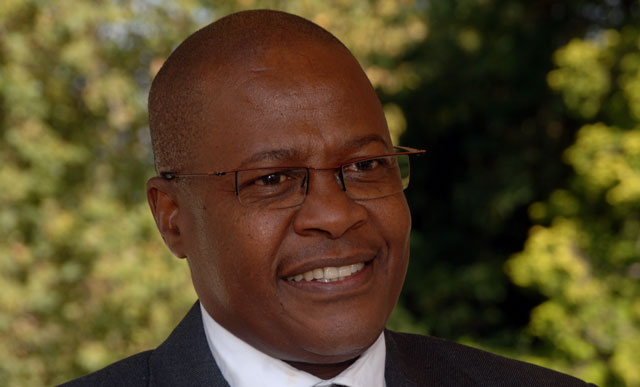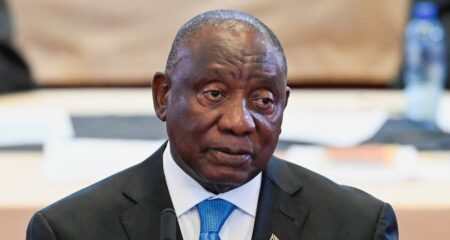
Reeling from his ruling party’s worst-ever election performance and a public backlash over a police investigations into his finance minister, President Jacob Zuma’s room to manoeuvre appears to be shrinking.
Anxiety over whether Zuma will fire finance minister Pravin Gordhan in a cabinet reshuffle has hung over South Africa since 23 August, when the news broke that Gordhan, 67, may face charges over allegations that he set up an illicit investigative unit during his time as head of the national tax agency. While Zuma expressed “full confidence” in the minister, he said he’s powerless to stop the probe.
Opposition parties and analysts have speculated that Zuma may use the case to install a more compliant head of the national treasury and reassert his authority following the ANC’s loss of control of major cities including Johannesburg and Pretoria, in 3 August local elections. This week, the cabinet said Zuma would be the chairman of a new committee to oversee state-owned companies.
“He is acting like a kamikaze pilot,” Susan Booysen, a politics professor at the University of Witwatersrand in Johannesburg, said by phone. “He is thinking about himself, and protecting his position and protecting the enclave of the ANC around himself.”
Zuma, 74, was pressured into appointing Gordhan to his post in December after his decision to replace the respected Nhlanhla Nene as finance minister with a little-known lawmaker sparked a sell-off in the rand and nation’s bonds. The two have been at loggerheads ever since, with Zuma brushing aside Gordhan’s pleas to fire the nation’s tax chief for insubordination and to replace the board of the loss-making state airline.
The markets may stay Zuma’s hand, according to Ralph Mathekga, a political analyst at the Mapungubwe Institute of Strategic Reflection, a Johannesburg-based research organisation.
“The space for manoeuvring for him, particularly when it comes to the treasury, was maxed out last year when he removed Nene and had to bring back Gordhan,” he said by phone. “There’s no space for him to move whatsoever.”
Likely replacement
Business Day said in an editorial Friday that Gordhan will probably be arrested and then replaced. His likely successor would be Brian Molefe, the CEO of Eskom, the Mail & Guardian reported on Friday, citing people it didn’t identify.
Fears that Gordhan’s job is in jeopardy pushed the rand to its lowest level in a month against the dollar on Thursday, while a day earlier yields on benchmark government bonds due December 2026 surged the most since Zuma fired Nene.
“If you wreck the economy, you destroy your political career, but it seems there is a disjuncture between economic and political power,” said Robert Schrire, a politics professor at the University of Cape Town. “He’s done virtually everything that ought to get a leader kicked out of office, and survived.”

Zuma, who is in Kenya for the summit of the Tokyo International Conference on African Development, has been dogged by scandal since he took charge of Africa’s largest economy in May 2009, including a ruling by the nation’s top court that he violated the constitution by refusing to repay taxpayer money spent on his private home. He fended off calls to quit with the backing of the ANC’s national executive committee, which is stacked with his allies.
He is thinking about himself, and protecting his position and protecting the enclave of the ANC around himself
Gordhan has drawn backing from deputy President Cyril Ramaphosa, the ANC’s economic policy head, Enoch Gdongwana, former finance minister Trevor Manuel and some of the country’s main business organisations, who have pleaded with Zuma to stop the probe of Gordhan. The president said he had no authority to halt any investigation.
“I just don’t think a country can chop and change ministers of finance, you need continuity,” Jacko Maree, the chairman of Liberty Holdings, one of Africa’s largest insurers, said in an interview in Nairobi, Kenya’s capital. “It would be a great pity if he were to be removed or asked to stand down, or pressurised to stand down.”
With Zuma scheduled to step down as ANC leader late next year and as the nation’s president in 2019, his grip over the party is loosening, according to Schrire.
“He has lost considerable influence and power,” Schrire said. “He doesn’t really have any capacity to now govern effectively and create a framework for growth. I don’t think he is going to get rid of Gordhan.” — (c) 2016 Bloomberg LP




